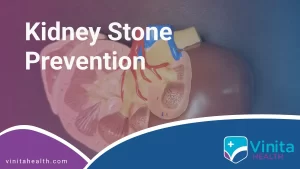Different Stages of Chronic Kidney Disease, Chronic kidney disease is a serious medical condition that affects millions of people worldwide. It occurs when the kidneys gradually lose their ability to filter waste products and excess fluids from the blood. Understanding the different stages of kidney disease is crucial for both patients and healthcare professionals to manage and treat the condition effectively. In this comprehensive guide, we will explore the various stages of chronic kidney disease, their symptoms, and the importance of early detection and management.
4 Different Stages of Chronic Kidney Disease
Early Detection and Intervention
The first different stages of chronic kidney disease are often asymptomatic, making it challenging to diagnose without routine medical check-ups. Kidney function remains relatively normal during this stage, but there may be underlying kidney damage. It is essential to detect chronic kidney disease in its early stages because early intervention can slow down its progression.
One of the key indicators of Stage 1 chronic kidney disease is the glomerular filtration rate (GFR). A GFR above 90 mL/min is considered normal, while a GFR between 90 and 60 mL/min suggests Stage 1 chronic kidney disease. Another marker is the presence of kidney damage, which can be indicated by the presence of blood or protein in the urine.
Mild Decrease in Kidney Function
In Stage 2, kidney function starts to decline further, with a GFR ranging from 60 to 89 mL/min. While the kidneys are still able to perform their essential functions, there may be mild symptoms that start to appear. These symptoms can include increased urinary frequency, fatigue, and occasional swelling, especially in the ankles and lower legs.
This type of different stages of chronic kidney disease often goes unnoticed as the symptoms can be attributed to other factors. However, it’s crucial to pay attention to these signs, especially if you have risk factors such as high blood pressure, diabetes, or a family history of kidney disease. Early detection and management are essential at this stage to prevent the progression to more severe stages.
Moderate Decrease in Kidney Function
As chronic kidney disease progresses to Stage 3, kidney function is significantly impaired, with a GFR between 30 and 59 mL/min. In Stage 3a, the GFR ranges from 45 to 59 mL/min, while Stage 3b has a GFR between 30 and 44 mL/min.
Patients in Stage 3 of different stages of chronic kidney disease may experience more noticeable symptoms, including high blood pressure, anaemia, and bone health problems. The accumulation of waste products and fluids in the body becomes more pronounced, leading to swelling, shortness of breath, and an overall feeling of unwellness.
At this stage, it is crucial to work closely with a healthcare provider to manage the condition effectively. Lifestyle modifications, dietary changes, and medications may be necessary to slow the progression of different stages of chronic kidney disease.
Severe Kidney Function Decline
Stage 4 is a critical phase of chronic kidney disease, a part of the different stages of chronic kidney disease, with a GFR ranging from 15 to 29 mL/min. Patients at this stage may experience a significant deterioration in kidney function and often require medical intervention. Symptoms can become more severe, and individuals may notice worsening fatigue, nausea, vomiting, and poor appetite.
A GFR below 15 mL/min is considered end-stage kidney disease (ESKD), which requires either dialysis or a kidney transplant to sustain life. However, before reaching this point, it’s crucial to explore treatment options such as dialysis or transplant to prepare for the transition to ESKD.
Conclusion
Different stages of chronic kidney disease are a progressive condition that can significantly impact an individual’s quality of life. Understanding the different stages of kidney disease is crucial for early detection and effective management. From the initial, often asymptomatic Stage 1 to the more severe and symptomatic Stage 4, the progression of chronic kidney disease can be slowed or even halted with the right interventions and lifestyle changes.
Read also Recovery after Kidney Transplant.





